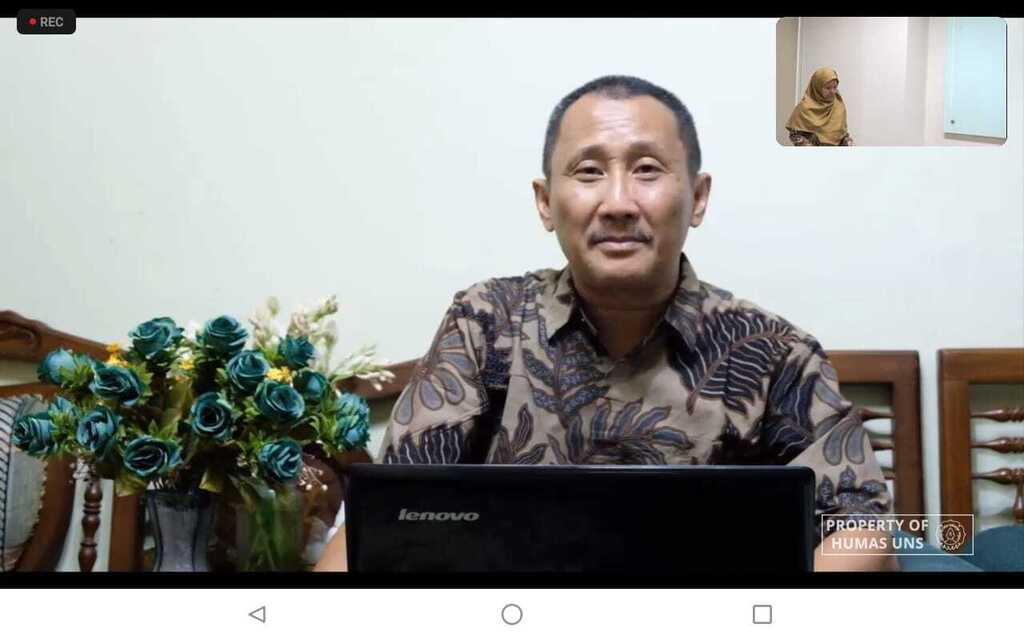UNS – The Doctoral Program in Cultural Studies at the Faculty of Cultural Sciences (FIB) of Universitas Sebelas Maret (UNS) Surakarta held a workshop on Tuesday (23/4/2024). The event took place at the Ki Hadjar Dewantara UNS Tower. The main objective of this workshop was to discuss curriculum-related issues.
The curriculum is something of high urgency in education. Therefore, it is important to have in-depth discussions and planning. Discussions are essential in determining the curriculum that will be implemented by an educational institution.
The workshop was opened with remarks from the Chairperson, Asep Yudha Wirajaya, S.S., M.A.; the Head of the Doctoral Program in Cultural Studies at UNS, Dra. Sri Kusumo Habsari, M.Hum., Ph.D.; the Vice Dean of FIB, Prof. Dr. Tri Wiratno, M.A.; and the Chair of the Indonesian Cultural Studies Association (AKBI), Dr. Yuliawan Kasmahidayat.
The event featured two distinguished professors as speakers and curriculum experts, namely Prof. Sam Pack, Professor of Cultural Anthropology at Kenyon College, Ohio, USA, and Prof. Melani Budianta, Ph.D., who is a professor at the Faculty of Cultural Sciences (FIPB) of the University of Indonesia (UI). Dr. Yuliawan Kasmahidayat, Chair of AKBI, began by highlighting the importance of curriculum planning.
“Curriculum planning must be carried out to provide results that align with the desired outcomes and are in line with the existing disciplines,” he said.


Reflecting on the implementation of the curriculum in the Doctoral Program in Cultural Studies at the Faculty of Cultural Sciences UNS, Prof. Sam Pack considered the current curriculum to be overly ambitious. This ambitious curriculum requires full support, especially from teaching staff, and adequate infrastructure to support it.
“The curriculum requires teaching staff specifically provided to teach Cultural Studies at the doctoral level at UNS. Moreover, the curriculum also needs to be supported by adequate infrastructure. Without these two elements, the implementation of the curriculum cannot be effectively controlled,” Prof. Sam Pack said.
Prof. Melani Budianta, Ph.D., who was invited as a speaker at the event, explained that cultural studies in Indonesia are important but also depend on how the concept of culture itself is understood. Therefore, cultural studies in Indonesia do not have a universally regulated curriculum. All curriculum is tailored to human resources according to the vision and mission of the respective study programs and universities.
Prof. Melani Budianta, Ph.D. also emphasized that the Doctoral Program in Cultural Studies must determine its position in order to establish its direction or goals, including those of its students’ research.
Humas UNS
留言 (0)